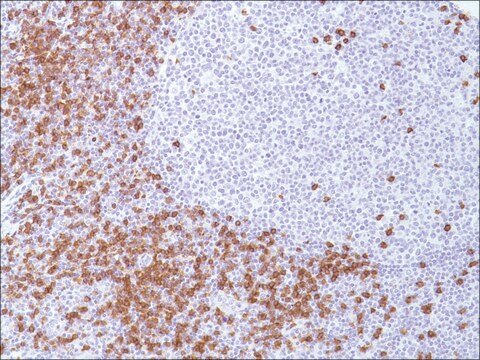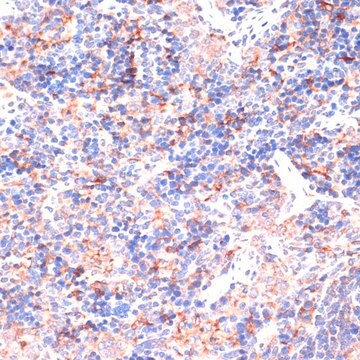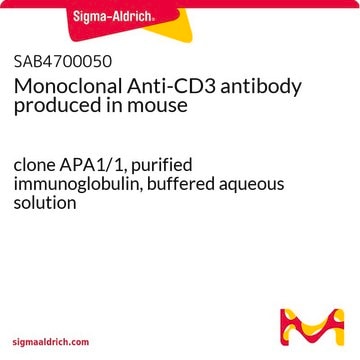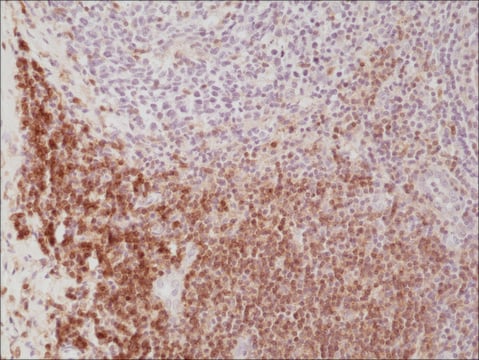SAB5500064
Anti-CD4 antibody, Rabbit monoclonal
recombinant, expressed in proprietary host, clone SP35, affinity isolated antibody
Sinónimos:
Anti-CD4mut, Anti-IMD79, Anti-OKT4D
About This Item
Productos recomendados
biological source
rabbit
Quality Level
recombinant
expressed in proprietary host
conjugate
unconjugated
antibody form
affinity isolated antibody
antibody product type
primary antibodies
clone
SP35, monoclonal
species reactivity
human (tested)
species reactivity (predicted by homology)
pig
technique(s)
flow cytometry: 1:100
immunohistochemistry: 1:50
isotype
IgG
UniProt accession no.
shipped in
wet ice
storage temp.
2-8°C
target post-translational modification
unmodified
Gene Information
human ... CD4(920)
General description
Immunogen
Features and Benefits
Physical form
Disclaimer
¿No encuentra el producto adecuado?
Pruebe nuestro Herramienta de selección de productos.
Storage Class
10 - Combustible liquids
wgk_germany
WGK 2
flash_point_f
Not applicable
flash_point_c
Not applicable
Certificados de análisis (COA)
Busque Certificados de análisis (COA) introduciendo el número de lote del producto. Los números de lote se encuentran en la etiqueta del producto después de las palabras «Lot» o «Batch»
¿Ya tiene este producto?
Encuentre la documentación para los productos que ha comprado recientemente en la Biblioteca de documentos.
Nuestro equipo de científicos tiene experiencia en todas las áreas de investigación: Ciencias de la vida, Ciencia de los materiales, Síntesis química, Cromatografía, Analítica y muchas otras.
Póngase en contacto con el Servicio técnico








